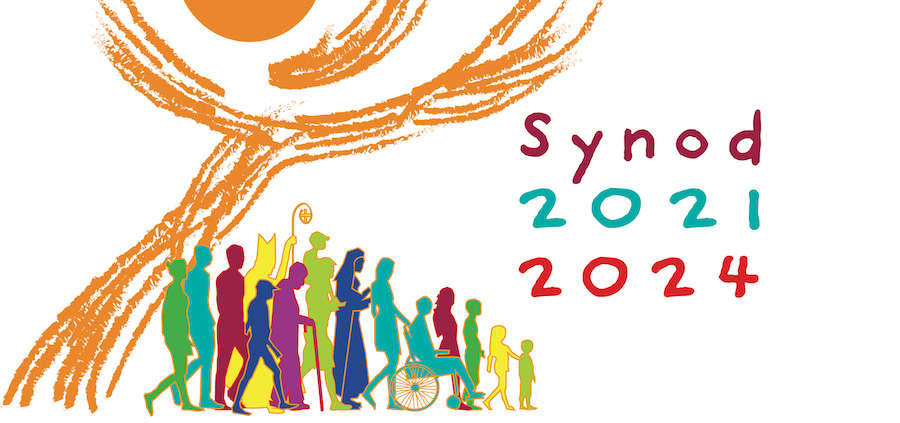A Month of Sowing: Synod Report for October 23, 2023
After completing work on section B.3 of the Instrumentum Laboris on Saturday, Synod participants reconvened this morning to begin the final week of the monthlong assembly.
Fr. Timothy Radcliffe, OP, who is acting as a “spiritual assistant” for the Synod, opened with a reflection titled “The Seed Germinates.” Fr. Radcliffe began to prepare delegates for the next stage of the synodal journey after the assembly’s conclusion on Sunday.
The Synod will gather for a second assembly in October 2024. Fr. Radcliffe characterized the intervening 11 months as “a time of quiet pregnancy” and “a time of active waiting.”
“It will be probably the most fertile time of the Synod, the time of germination,” he said.
The words that Synod delegates have exchanged over the past month “are the seeds that are sown in the soil of the church,” he said. “They will be at work in our lives, in our imagination and our subconscious, during these months. When the moment is right, they will bear fruit.”
Sr. Maria Grazia Angelini, OSB, who is serving with Fr. Radcliffe as another of the Synod’s “spiritual assistants,” followed with a meditation on the Parable of the Mustard Seed in Mark 4:30.
The mustard seed “is the identity card of the Kingdom,” Sr. Angelini said. “The surprising sense of the small as the bearer of the future marks the style of Jesus.”
Sr. Angelini contrasted the greatness of the tree in the parable with the humility of the seed from which it sprouts. She described the Synodal Assembly as a “month of sowing.”
“Today—in a culture of striving for supremacy, profit, and followers, or evasion—the patient sowing of this synod is, in itself, like a profoundly subversive and revolutionary act,” she said.
Fr. Ormond Rush, a theologian from Australia and one of the Synod’s “expert facilitators,” concluded with a theological reflection on the shaping of the Synod’s synthesis document. His central focus was the distinction between two interpretations of church tradition: a “static” interpretation that is “legalistic, propositional, and ahistorical,” and a “dynamic” interpretation that is “personalist, sacramental, and rooted in history.”
Citing the work of the late Pope Benedict XVI—who, as Fr. Joseph Ratzinger, made key contributions to the theology of Vatican II—Fr. Rush spoke of the dynamic interpretation as “seeing the past being realized in the present, and yet open to a future yet to be revealed.” He quoted from the Vatican II document Dei Verbum: “The tradition that comes from the apostles makes progress in the church, with the help of the Holy Spirit.”
He continued: “In Dei Verbum—and this is important for understanding synodality and the very purpose of this Synod—this divine revelation is presented as an ongoing encounter in the present, and not just something that happened in the past.”
“This Synod is a dialogue with God,” he told the delegates. “God is waiting for your reply.”
In their final week together, Synod participants will be meeting in small groups to discuss the synthesis document. Delegates will vote on the document Saturday evening. A separate document, “Letter to the People of God,” will also be issued at the end of the assembly.
At a press conference following the morning’s events, Cardinal Christoph Schönborn, OP, archbishop of Wien, Austria, said that “Europe is no longer the main center of the church.”
The continent “is a bit lagging behind in the way we live synodality among the local churches,” he said. “I think we need some stimulus to go further.”
Cardinal Schönborn observed how the Oriental churches have long recognized the link between synodality and liturgy, something the Western churches can learn from.
“The liturgy is at the heart, the celebrated faith,” he said. “There is no synodality without liturgy.”
Cardinal Schönborn also said that of the many Synods he has attended, the methodology and process of the current Synod “is the best I have experienced.”
Joining Cardinal Schönborn at the press conference were Cardinal Jeans-Marc Aveline, archbishop of Marseille, France; Cardinal Carlos Aguiar Retes, archbishop of Mexico City; and Sister Samuela Maria Rigon, SSM, superior general of the Sisters of Our Lady of Sorrows and professor of psychology at the Pontifical Gregorian University in Rome.
“This is going to be a decisive week for us,” Cardinal Aveline said. “We have to be careful and listen to what is growing.”
Cardinal Aveline added that “there is a lot of room for progress” and “there are opportunities to allow more people to participate in the synodal process.”
Sr. Rigon said that the Synod has helped her realize that “my viewpoint is a window open on the horizon,” and that the numerous individual contributions to the Synod can create “a grand mosaic.”
Returning to the morning’s theme, she said, “We have received an important seed, and God is going to make it grow.” ♦
Michael Centore
Editor, Today’s American Catholic




Leave a Reply
Want to join the discussion?Feel free to contribute!